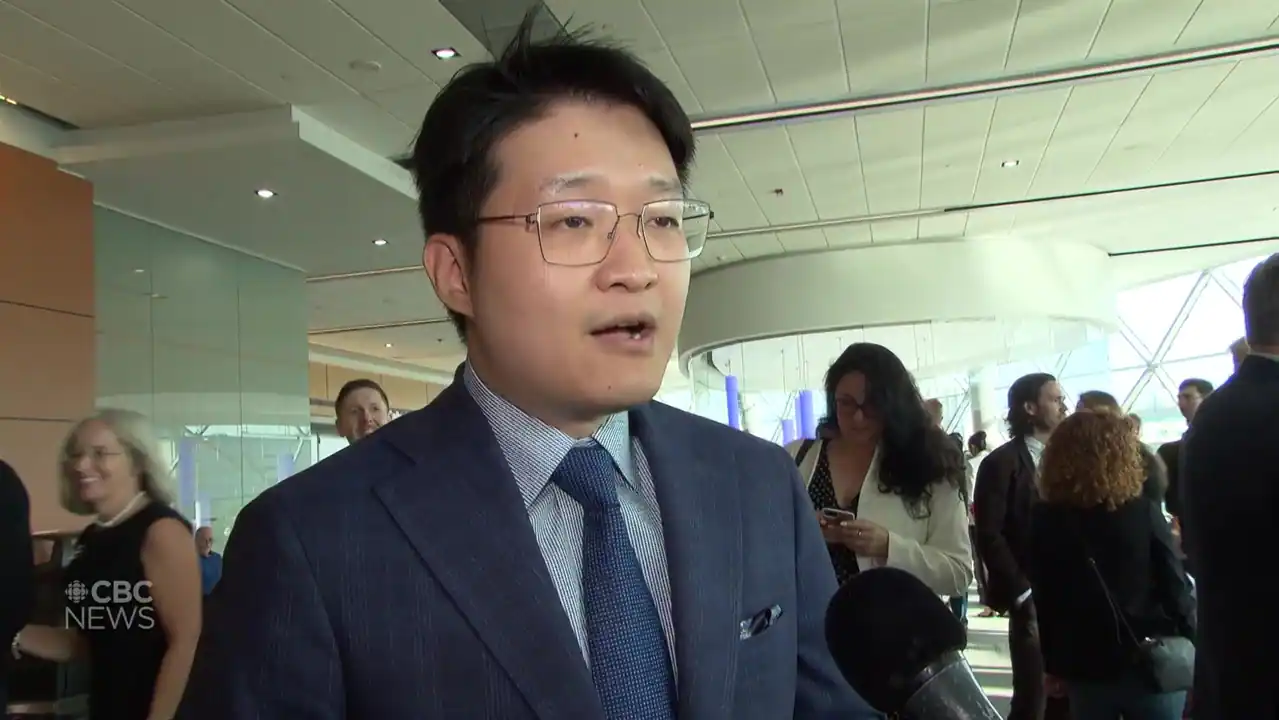
It was Conservative Leader Pierre Poilievre’s YouTube videos that caught the eye of Joshua Deslandes, a University of Toronto student studying economics and political science.
“He really inspired me to become a Conservative. I just loved the message. I loved all the branding. I really just love the Conservative Party,” the 19 year-old said during the Conservatives’ convention in Ottawa last week.
“I bought a membership and I’m really just engaging, meeting MPs, talking to people, and it’s just been very fun.”
Deslandes is one of the Conservative Party of Canada’s newest members — a young person of colour who says he was drawn in by a positive message about the future.
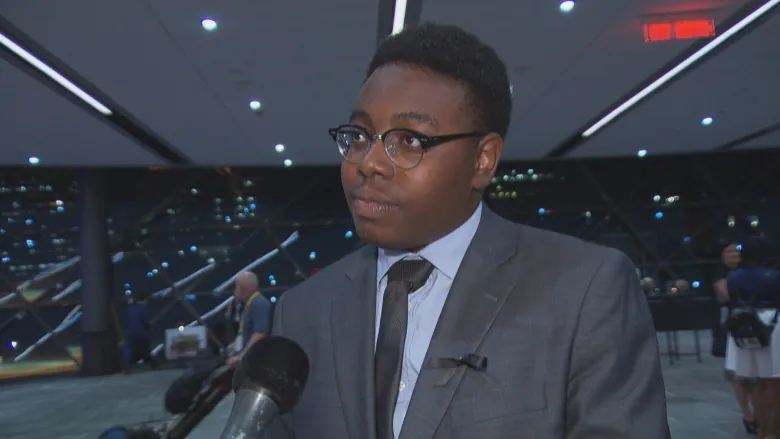
Poilievre became the new leader last week after capturing two-thirds of the votes— a level of party support that not even former Conservative prime minister Stephen Harper enjoyed.
Tina Park, a lecturer in Canadian nationalism at the University of Toronto, said Poilievre’s appeal among younger voters is driven in part by his social media and communication strategies — and by the fact that he’s a relatively young face in Canadian politics.
“If you listen to his speeches, it’s very direct, very simple and very relatable for young people who are struggling with inflation issues, who are finding themselves unable to buy a house because things are just too expensive for them,” Park said.
“Some of his messages are very extreme, to be honest, but in a way that satisfies a certain appetite among the Canadian public about a change and an alternative sort of vision that could take them forward and help them plan a new future.”
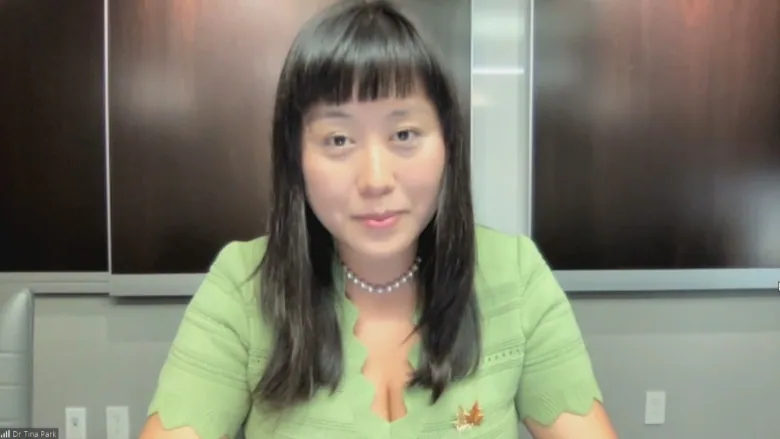
Park said that as Canadians struggle with inflation brought on by the pandemic and global supply chain issues, many are being forced to cut back on spending.
“Because of the economic pressure that they’re facing, we always have a tendency as human beings to turn to the other side when you think that the current system is not working for you,” she said. “Especially the younger people in their 30s who are looking to start a family and then move on with the next stage in their lives, [they] find a new sort of vision in Mr. Poilievre.”
Park said while the Conservative Party is seeing a diverse group of young people joining up, it has always had a core group of BIPOC (Black, Indigenous and people of colour) members, especially recent immigrants.
Sufiyan Master, a 21-year-old from Montreal and a new Conservative Party member, said he hadn’t seen himself in the party until recently.
“I never thought of politics before … just because it’s a thought that’s felt so out of reach,” said
“As a Muslim son of an immigrant, we’ve always leaned toward the Liberal Party. It was just something that felt like home— felt like it represented our values. But I think us as minorities, we have this misperception, a misunderstanding of the different visions that different parties can come to the table and offer.
“Right now it’s about thinking of the future of Canada and how the past few years have been dealt with. It’s quite obvious that not a lot of people have agreed with what’s been happening.”
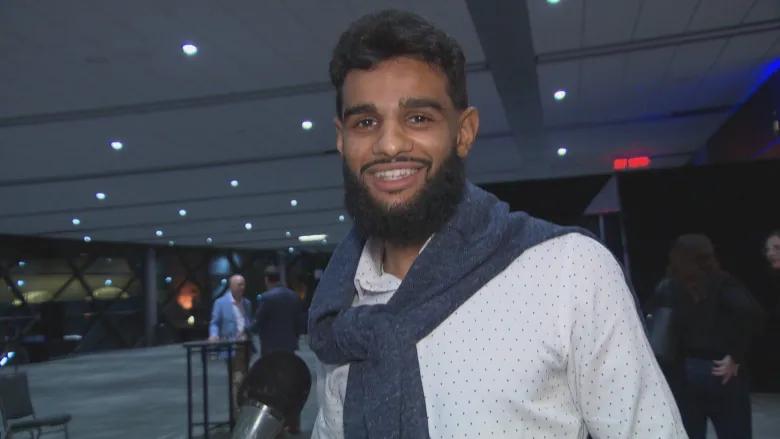
As more BIPOC individuals take on roles with the party, that new diversity also helps draw in others, said Aderoju Alao, director of communications for the Association of Black Conservatives.
“For Black people, it seems like we finally have a chance at the table [to] have our voices heard,” she said.
Alao, who is based in Edmonton, said her group has seen more BIPOC and young people getting interested in Conservative parties throughout the country.
Conservatives also have been reaching out to minority communities and recent immigrants and with policies designed specifically for them, she said.
“It can be better, but they’re putting in that effort into making sure that they’re reaching out to as many diverse populations that exist in their regions,” Alao said.
“In the past — and I don’t say this categorically — given the history of the Conservative Party, there is that belief from the public that the BIPOC community cannot be represented in the Conservatives. But we are going into a new era.”
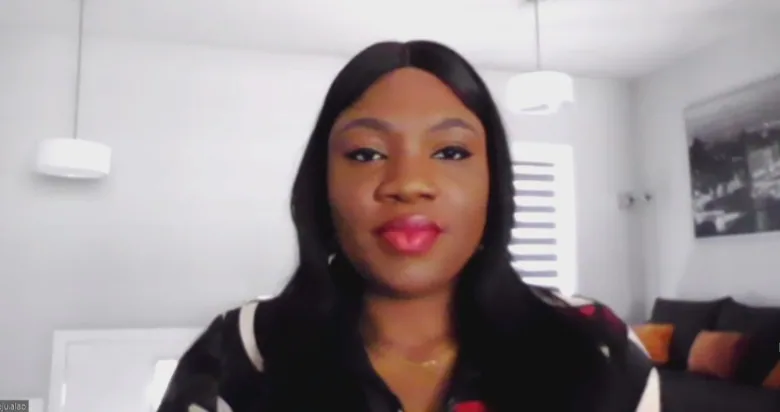
Jeff Yang, 31, said he’s seeing that happen. He once considered himself a Liberal — he even campaigned for Justin Trudeau when he was in his 20s.
More recently, Yang — who works in financial services in Toronto — has campaigned for Poilievre. He said he’s noticed many young people he speaks to are now interested in the Conservatives.
“I saw this for Mr Trudeau’s campaign back when he first ran for prime minister. There was a lot of youth support for the Liberal MP candidates,” he said.
“It says to you that this party has a lot of ground level and grassroots support and it gives it a good shot of winning an election.
“If you look across the room, the stereotype is that usually it’s old white people that are Conservatives. But I’m seeing a lot of non-white people who are coming to support the Conservatives.”
Three young people talk about why they decided to become members of the Conservative Party at the recent convention in Ottawa.
